I too researched the backgrounds of the three leaders, but at the time they were elected to head their respective parties – so we’re talking 2005 for David Cameron, and 2007 for Nick Clegg and Gordon Brown. These findings were originally reported in the Telegraph, and are now summarised in the new magazine Your Family History, published on 22 April 2010.
The Prime Ministerial Candidates: A Genealogical Backdrop
- By Aaron


With the UK General Election only a week away, people are really starting to size up the Prime Ministerial candidates. We’ve seen endless discussion on their policies, personalities, expenses, and even interactions with the public, but so far relatively little has been said about their genealogy. This post aims to help fill that gap.
We’ve researched the background of the three major party leaders – Gordon Brown, Nick Clegg, and David Cameron. While there’s a lot more information out there than we could possibly fit into a single article, this post should give you a good overview of where the candidates come from. As you’ll see, there are some extraordinary connections among the candidates’ roots.
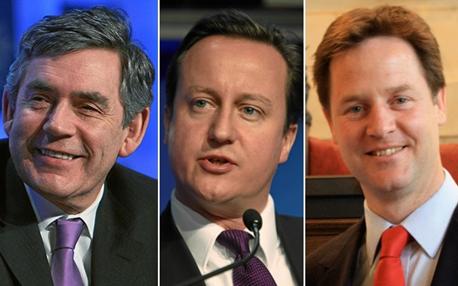
David Cameron
David Cameron is often characterized as an aristocrat, and so far as his family background is concerned this assessment seems to be a valid one. On his mother’s side, Cameron stems from the Mount family, a long line of baronets from the south of England. Interestingly, the Mounts were not only well-to-do, but had a long parliamentary tradition as Conservative backbenchers going back at least as far as Cameron’s ancestor William Mount – conservative MP for the Isle of Wight in the 1830s.
Through this side of his family David Cameron is also related to Ferdinand Mount, who headed up the 10 Downing Street policy unit under Thatcher in the 1980s, and is now a prominent novelist and commentator. This connection makes Ferdinand’s son, Harry Mount, a cousin of David’s. By coincidence, Harry Mount was photographed in the same Bullingdon Club shot as Cameron’s future Shadow Chancellor, George Osborne.
On his father’s side, Cameron’s roots are in finance and entrepreneurialism. His father came from a long line of stockbrokers, with Cameron’s great-great-grandfather heading up the Hong Kong and Shanghai Bank (now HSBC). Another great-great-grandfather, Alexander Geddes, made something of a name for himself in the Chicago grain business, before taking his fortune back to Britain in the 1880s.
As well as passing on enormous wealth, this paternal line of Cameron’s family was if anything even more blue-blooded than his mother’s side. Tracing their roots back, we discover that Cameron is, through this side of his family, a direct descendant of King William IV – although not without a dash of aristocratic scandal. Cameron’s royal blood comes through his ancestor Elizabeth FitzClarence, who was an illegitimate child of the King’s long-running affair with actress Dorothy Jordan. Cameron thus has a claim to royal blood, though perhaps not royal prestige.
Nonetheless, this relationship makes David Cameron fifth cousin twice-removed from the Queen, and seventh cousin of princes William and Harry. Less well-known, it makes Cameron a distant cousin of Boris Johnson, both tracing their roots back to George II (and Boris also through illegitimate lines). The pair were known to have been acquaintances at Oxford and at Eton, but their connection, it seems, goes back even further than that.
Nick Clegg
Nick Clegg has an extraordinarily colourful genealogy, the diversity of which has left him only one-quarter-English by blood.
Clegg’s mother was Dutch, and lived out her childhood in the Dutch East Indies – now Indonesia. She had something of an idyllic early childhood, but this was shattered in the early 1940s with the Japanese invasion of the islands. The invasion led to the future leader’s mother being sent to a concentration camp, where she was separated from her family and spent the next three years in terrible conditions. It was only after the war, when she moved to England, that she was to meet Clegg’s father.
Interestingly, on this side of the family Clegg is related to Johann V, Count of Nassau-Dillenburg. This connection not only makes Clegg a descendant of the Dutch nobility, but also establishes him as a distant relative of David Cameron, who shares this ancestor. The party leaders who clash so markedly in election debates are, it transpires, actually cousins – albeit 16th cousins!
Clegg’s similarities with David Cameron don’t stop at their aristocratic heritage, however. Like Cameron,
Clegg’s father hails from the world of finance, where he actually brushed shoulders with Ken Clarke, Cameron’s business secretary. This elder Nicholas Clegg was half-Russian, on his mother’s side being descended from the Russian nobility. Clegg’s great-great-grandfather, Ignaty Zakrevsky, was attorney general of the Imperial Russian Senate. His daughter and Clegg’s great-great aunt, Moura Budberg, was something of a mover and shaker amongst European high society in the early 20th Century, and as well as marrying a Count and later a Baron had affairs with the writer HG Wells and the Russian literary giant, Maxim Gorky. She also moved among intelligence circles, and was long suspected of being a double agent, working for both Soviet intelligence and MI6 – although nobody knows where her true loyalties lay. She was described by the British Embassy in Moscow as “a very dangerous woman”.
Moura also raised Cameron’s paternal grandmother, since her mother Alla appears to have had something of an unstable lifestyle. She moved to Paris to marry her second husband, Rene Moulin, and later divorced him and married V. I. Trubnikov. She lived a raucous life, and later became addicted to morphine. In 1929 she had to be rescued by Moura after her husband, V. I. Trubnikov, shot himself in Naples under strange circumstances.
But what of Clegg’s English roots? This seems to be the only segment of Clegg’s family which was not part of high society. Nick’s grandfather, Hugh Anthony Clegg, was certainly well off, and was editor of the British Medical Journal for 35 years. But the family had relatively modest roots, going back to John Clegg, who appears to have been a grocer and cabinet maker in Yorkshire in the early 19th century.
Gordon Brown
When it comes to ‘ordinary’ roots, Gordon Brown certainly comes ahead of his two competitors. Brown’s father, John Ebenezer, was a minister of the Church of Scotland, and his ancestors seem to have been Scottish farmers in Fife for at least three traceable generations. There is at least one exception to this, though. Brown’s great-grandfather, James Mavor, set himself up as a stone mason in the 1870s, and by the start of the following decade was employing 17 men and 3 boys in his construction firm. Brown does hail from highland farmers, but it would be fair to say that some of them displayed an upwardly-mobile streak.
Brown’s maternal lineage is if anything more varied. Gordon’s mother, Jessie Elizabeth Souter, was the daughter of a timber merchant, and her grandfather, John Henderson Souter, worked as a mason. There is also a little-known secret in this side of Brown’s family past, discovered by extensive searches of online records. Brown’s great-great-grandmother, Jessie Cruickshank, had an illegitimate child at the age of just 16, following a relationship with a doctor of medicine 20 years her senior. It’s hard to believe that the affair didn’t cause extensive gossip in their small highland village.
Despite their differences, Brown and Cameron do share a connection of sorts – albeit by geography rather than blood. David Cameron’s family have been in finance for several generations, but this tradition was started only after a much longer period of highland farming. Searches have revealed that Cameron’s ancestors were tilling land in Scotland, and not far from the fields that Brown’s family used to work so hard on. It’s fascinating to think how far the two families diverged since then.
So that’s a brief overview of the candidates’ genealogies. We hope it adds some more colour and depth to the background of the electoral candidates. If you have any further thoughts or information, make sure you post them in the comments below!
12 May 2010 – This post was composed from a mixture of primary and secondary research. The information relating to the illegitimate daughter of Brown’s great-great-grandmother, Jessie Cruickshank, was sourced from a FindmyPast Blog of April 2010, which we understand was originally researched by Roy Stockdill.




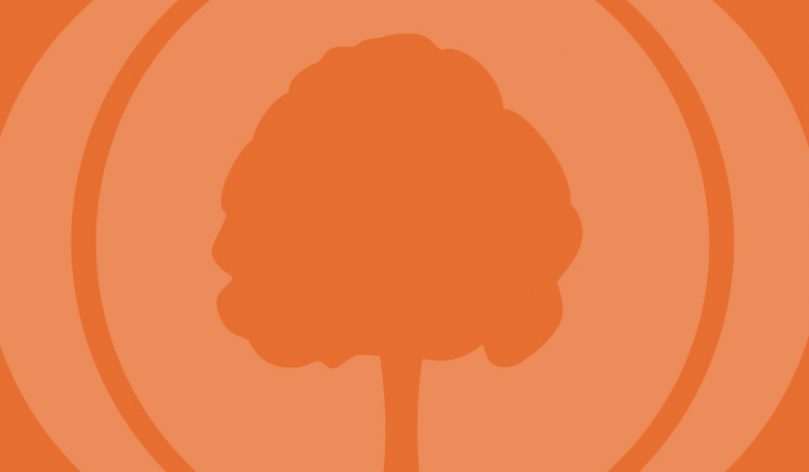
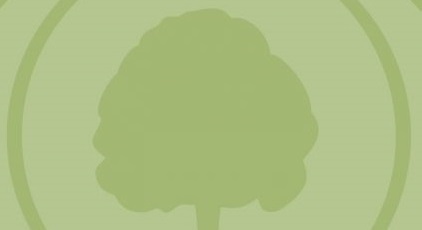

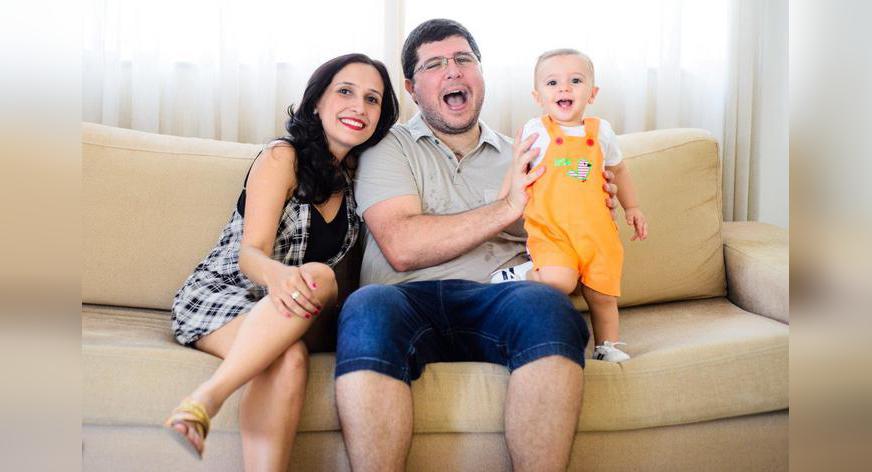
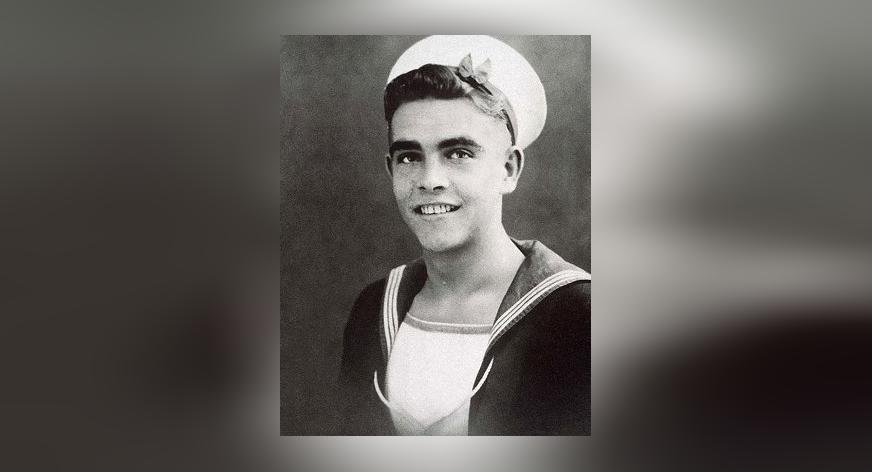

Roy Stockdill
May 12, 2010
I am the genealogist who researched the ancestries of the three party leaders for the genealogical website, Findmypast. They issued a press release on it and, though I wasn’t credited by name, I recognise some of my work in the above material. Particularly, it was I who uncovered the Victorian scandal of the farmer’s daughter and the doctor in Gordon Brown’s family tree!
On Nick Clegg, I should point out that though his most recent ancestors were indeed mostly foreign and from nobility and the upper classes, his early male line roots in Yorkshire were relatively humble. I have traced at least back to his four-times-great-grandfather, Christopher Clegg, baptised in 1775 at Birstall, near Bradford, who was a coal miner.
Hs son John Clegg, born about 1803, was a master joiner and cabinet maker and later a grocer. John’s son Simeon, born in 1844, was first a railway porter, then a butcher and later an engineer’s clerk in Hull. Both John and Simeon were born at Adwalton, Drighlington, near Bradford, which was the site of the Battle of Adwalton Moor in 1643 during the Civil War. In the Victorian census returns they appear to have been just an ordinary working family, with no servants or any such trappings.
It was the son of Simeon, another John born in 1869 at Leeds, who appears to have started the Cleggs on the upwardly mobile path. Nick Clegg’s great-grandfather, he became a clergyman and a schoolteacher, eventually running his own schools at St Ives, Huntingdonshire, and Lowestoft, Norfolk. His son Hugh Anthony Clegg, Nick’s grandfather, continued the trend by becoming a doctor and distinguished editor of the BMJ.